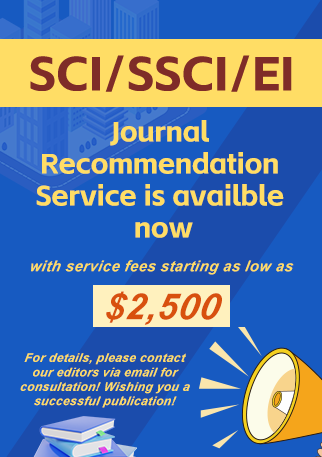Editorial Process, Peer-Review and Production
Articles submitted to Madison Academic Press (MAP) journals are subject to rigorous peer-reviewing process. Single-blind (the reviewers know the authors’ identities, but the authors do not know the reviewers’ identities) will be used upon request and different journal policies.
The reviewers and external editors will need a deep-link to login the MAP submission system to operate the tasks assigned.
The Instructions for Editors guides editors on oversee the whole editorial process.
When a manuscript is submitted, the submission is coordinated by the in-house Managing Editor, following the whole editorial process for the manuscript: peer-review, decision-making, possible revision, acceptance(decline), copyediting, proofreading and final publication. Editor(s), including Editorial board member, Associate editor, Guest editor, will be assigned to the submitted article and will handle the peer-review.
At least two coincident review comments per manuscript are requested for each manuscript. The Editor-in-Chief, Guest Editor, or a suitable editorial board member can make the final acceptance or decline for a manuscript.
After acceptance of an article, the in-house Managing Editor will organize the production of the paper, which entails copyediting, English editing and final production in preparation for publication on the journal website. All journals are structured in yearly volumes and either monthly, bi-monthly, quarterly or continuous published issues.
Learn more about the MAP’s peer-review policy. You may also refer to the peer-review policy on each journal’s Editorial Workflow page.
Editorial Board Structure
The editorial board usually consists of a group of prominent scholars in the journal's academic field. Individuals should be made aware of their responsibilities when invited to join the board.
Editor-in-Chief
The Editor-in-Chief oversees the whole peer-review and overall strategy of the journal. The editor-in-chief needs to approve or decline the decision of the handling Editors on all submissions. The editor-in-chief can be more than one, and sometimes in cooperation with the publisher and academic society if applicable. The Editor-in-Chief also acts as the ambassador of the journal and takes responsibility of the academic quality of the journal.
Associate Editors
If the scopes of the journal are multidisciplinary, a journal may have many associate editors. Article submissions are assigned to associate editors to handle the peer-review process. Associate editors oversee and decide whether to publish, revise, or reject an article. They are expected as well to play a major role in recruitment of potential publications and are expected to provide at least one contribution per year.
Editorial Board
Editorial Board is a composition of a journal’s whole editorial board. They contribute by publishing and/or contributing as reviewers to the journal. The editorial board should increase the credibility to the journal in its academic field.
Duties of Editors
Decision on the Publication of Articles
The editors are responsible for deciding which of the articles submitted to the journal should be published. The editors may be guided by the policies of the journal's editorial board subjected to such legal requirements regarding libel, copyright infringement and plagiarism. The editors may consult with reviewers in making this decision.
Fair Play
Manuscripts shall be evaluated solely on their intellectual merit.
Confidentiality
The editors and any editorial staff must not disclose any information about a submitted manuscript to anyone other than the corresponding author, reviewers, potential reviewers, other editorial advisers, and the publisher.
Disclosure and Conflicts of Interest
Editors, including Editor-in-Chief, Associate Editor, Guest Editor or Editorial board member must recuse themselves from editorial decisions if they have conflicts of interest or relationships related to articles when making final decisions about manuscripts. Editors should inform the managing editor or editorial staff member of any conflict of interest. On the occasion that editors as authors, co-editors who are least conflicted will be assigned to the manuscript.
Special Issues
Many journals publish special issues as part of the scheduled journal volumes. Special issues are often devoted to investigating the emerging or “hot” topics, or conference, or to exploring alternative perspectives on familiar themes.
A special issue can be handled by a Guest Editor. Most special issues are developed when a subject expert identifies a demand for an issue in a particular area and approaches a journal Editor to propose an issue.
Proposing a special issue
A special issue can be proposed by filling out the online form. The link of the form can be found at journal’s home page.
A formal proposal should contain the following information
1. A title of the proposed special issue.
2. The names, affiliations of all proposed Guest Editor(s) (GE) together with brief biographical details.
3. A brief description to explain the significance, novelty, technical advancement, and relevance to the scope of the journal of the proposed theme. 4. A list of Keywords.
5. A proposed schedule including submission deadline and completion of the editorial process.
Selection criteria of the proposals is based on:
1. the overall quality of the proposal;
2. whether the topic is within the scope of the journal;
3. whether it advances new perspectives and complements previously published issues of the journal;
4. GE's experience in editorial work;
Guest Editor Responsibility / Guest Editing a Special Issue
Special issues are normally edited by a Guest Editor who invites colleagues from the same research field to contribute articles on a topic within their expertise. The Guest Editor works together with the Editorial Office to prepare a general description, call for papers and keywords for the special issue. We aim for at least five articles published per special issue. The Guest Editor usually makes decisions on the acceptance of manuscripts submitted to his or her special issue (depending on the journal's policy-in some cases they may make a recommendation to the Editor-in-Chief).
Guest Editors should not hold conflicts of interest with authors whose work they are assessing, e.g. if they are from the same institution or collaborate closely. In this case the Editor-in-Chief or a suitable editorial board member will make final acceptance decisions for submitted papers.



